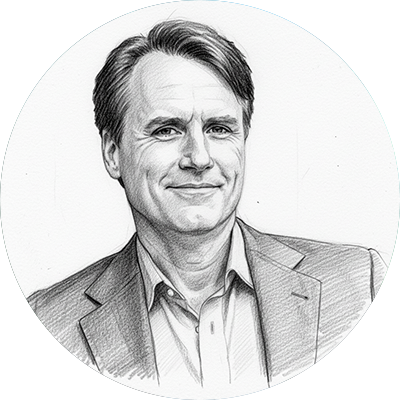Why Spiritual Psychology is the Future of Psychology
Separating spirituality and psychology ignores what’s essential for health and happiness.
This month we explore spiritual psychology, an area in which we offer many courses here at The Shift Network. My Master’s degree is in East-West Psychology with a concentration in Transpersonal Psychology, a term coined by Dr. Stanislav Grof.
The reason I think “spiritual psychology” is the right term to use — for now, at least — is that it reunites two things long separated in popular discourse and academic inquiry: the mind and the soul. The truth is that these are not fully distinct from each other. To understand how to heal the mind, it often requires an understanding of the soul.
In ancient Greece, psyche and soul were seen as identical. Psyche meant “mind,” “soul,” and “spirit.” Psychology is quite literally then — at least etymologically — the study of the soul.
Modern psychology, though, has been built upon many materialist assumptions that leads it to favor mechanistic causes for imbalances and challenges.
That will, I believe, be seen as a clear historical mistake and a product of an overzealous separation from religion.
Mystical experiences have a power to rewire our beliefs in the direction of whole-system health. Some traumas have roots that extend beyond the biographical lifetime.
To really understand dreams requires a deeper metaphysical view of what is creating the dreams. To really understand how to heal, we need to honor the full complexity of our humanity, which includes higher dimensions of consciousness that transcend one lifetime.
Evidence from mediumship, reincarnation research, and psychical literature makes a clear scientific case that a materialist understanding of consciousness is incomplete.
If the causes of what happens in our psyches are literally defined out of existence by modern psychology, it’s going to have trouble creating lasting results in creating awake, whole, and fulfilled humans.
And that’s part of why we see a current culture of psychology that relies heavily on medication rather than holistic healing, short-term symptom alleviation rather than long-term growth, and real compromises in helping people to feel meaning, purpose, and connection.
The spiritual dimension of the psyche is part of who we are. So spiritual psychology is, in actuality, redundant. Yet it is a helpful redundancy to bring forward a dimension that’s been largely marginalized but is essential for health, happiness, and ultimate fulfillment.
Spiritual experiences reconnect the threads of who we are. They give us a larger frame and a larger mission in life. They bring meaning, purpose, and a sense of being at home in the universe. Spirituality is a very important ingredient in most people’s lives and a psychology that dismisses it is a psychology that is not grounded or wise.
This month, we’ll feature articles from luminaries in the field of spiritual psychology, including Rabbi Dr. Tirzah Firestone, Arielle Schwartz, Jim Morningstar, and Robert Moss.
We encourage you to embrace a more holistic and spiritual vision of psychology — it’s central to creating a more enlightened humanity, which is, I believe, why we are all here.
Stephen Dinan, founder and CEO of The Shift Network, is a Stanford- and CIIS-trained leader, author of Sacred America, Sacred World, and internationally recognized voice in transformational education whose vision for a more conscious world continues to inspire global change.






30 years ago I lucked into a most perfect program for me, spiritual psychology, based on Roberto Assigioli’s psychosynthesis. From the first meeting it felt like coming home. One of the things I remember is after a couple of meetings I raised my hand, a bit embarrassed, to ask what is “Presence”, since it seemed that everyone else understood its meaning. By that time I had Bachelor’s in Psychology and a ME.D in counseling. And yet it wasn’t until I heard the term Spiritual Psychology that my life and my education aligned.
I’ve been watching this general conversation for decades.
The problem, as you state, is that much of current psychology is stuck in the European Enlightenment’s repudiation of the Church, and Behaviorism’s obsession with establishing psychology as a legit science through reductionist methodology.
It’s not helped by the articulations in the ancient traditions being in pre-modern and often culture-bound terms — *and* designed to address a different kind of “wounding” than we have in the West.
And it’s not helped by the very narrow aperture that most people, including psychologists, have to the transcendent/transpersonal dimension of consciousness. The existence of this mode-of-knowing is very difficult to demonstrate, so many clinicians and theoreticians view it as metaphorical or something contained within the individual person. And it is neither.
And even when clinicians & investigators are transcendence-aware, “non-dual states” remain mostly hypothetical, and few clinicians have the subtlety and breadth of awareness to directly perceive the movement of the transcendent in/through the beings of their clients — how the transcendent dimension of the client’s being is sensately acting-upon their human life.
So there is a tremendous need for researchers and psychotherapists to also be spiritual adepts — to have a deep and fruitful personal spiritual practice — preferably mentored in one of the authentic traditions that actually understands the “subtle anatomy of the mind” and has a time-tested empirical view and technical toolbox.
I look forward to further development of this theme with your guests.
@}->-`,----